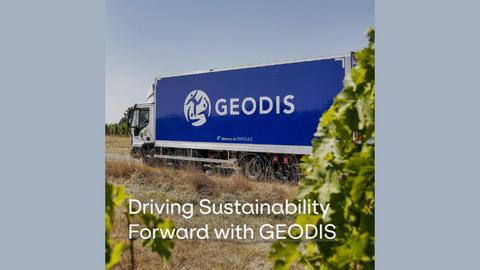Publications
Focus 81 | Air France Accelerating Efforts to Reach Net Zero Emissions by 2050

How is Air France pioneering sustainable aviation practices to reduce its environmental impact?
As part of its contribution to meeting the objectives of the Paris Agreement, which aims to limit global warming to below +2°C, the aviation industry must step up its environmental transition. For this reason, Air France has launched the 'Air France ACT' programme setting out the airline’s new CO2 emissions reduction strategy.
This strategy is based on 3 priorities:
- Reduce, in priority, the direct emissions generated by Air France operations,
- reduce indirect emissions, generated upstream and downstream by the company’s activities,
- and in addition, support projects that absorb CO2 from the atmosphere.
“Air France ACT” embodies the transparent, realistic, and science-based approach adopted by the company to ensure its environmental transition through concrete and measurable actions.
Decarbonising aviation is not an easy task and will take time. This process relies on close cooperation between the different stakeholders: aircraft and engine manufacturers, fuel suppliers, airports, air traffic control, public authorities. For innovation, research and development we partner with universities and research institutes.
What initiatives has Air France undertaken to integrate Sustainable Aviation Fuel (SAF) and other technologies to reduce carbon emissions?
Air France has five priority actions to reduce and avoid CO2 emissions including the increased use of Sustainable Aviation Fuel (SAF).
The other four of these initiatives are:
Fleet renewal with new-generation aircraft – Airbus A220, Airbus A350 – more fuel - efficient, emitting up to 25% less CO2, and a noise footprint reduced by 33% on average. By 2030, these aircraft will make up 70% of the Air France fleet compared to 7% currently thanks to a one billion euro investment policy through to 2025.
Eco-piloting techniques: taxiing using only one of the engines whenever possible, optimised flight paths using artificial intelligence, continuous descent in cooperation with the air traffic control authorities, to name but a few. These initiatives, made possible by the efforts of Air France flight crews trained in these practices, reduce CO2 emissions by 2 to 3% on average over the year.
Introduction of a more responsible catering offer, to reduce the carbon footprint. On board flights and in the lounges, Air France favours local, seasonal produce whenever possible. The company also offers customers a pre-selection of dishes before the flight in the long-haul Business cabin, as part of its active commitment to reducing food waste. By the end of 2022, Air France eliminated 90% of single-use plastics compared to 2018, after having replaced in 2019 plastic cups, cutlery and stirrers with sustainable alternatives.
Developing intermodal transport, to offer low-carbon transport alternatives for short distance journeys, notably within a reinforced partnership between Air France and SNCF for train + air service in France and Belgium.
As of July 2024, a combined ticket offering an Air France flight and a CFF / SBB train ticket to / from 6 Swiss cities is possible. Air France plans to gradually extend its offer by adding further stations in Switzerland and offering this service to customers connecting from another flight at Paris-Charles de Gaulle.

Contributed by




